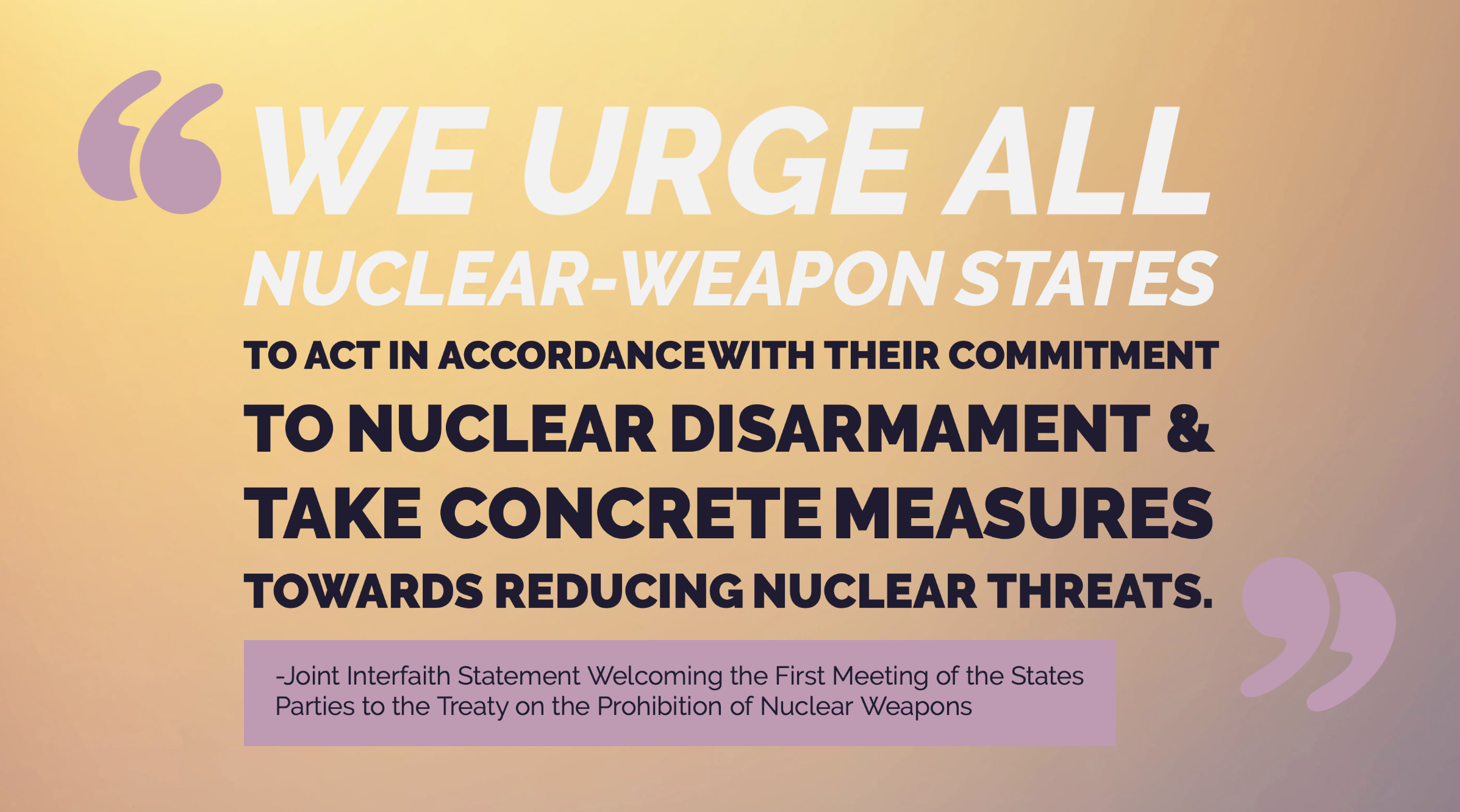On June 22nd, on the occasion of the 2nd day of the historical First Conference of the Member States Parties (1MSP) to the Treaty on the Prohibition of Nuclear Weapons (TPNW) which took place in Vienna, the World Council of Churches representative delivered an Interfaith statement signed by IFOR together with more than 140 other organizations.
Read here the complete text:
Joint Interfaith Statement Welcoming the First Meeting of the States Parties to the Treaty on the Prohibition of Nuclear Weapons (22 June 2022)
As faith communities from a diversity of traditions and located all over the world, we join together with one voice to mark this first Meeting of States Parties (MSP) to the Treaty on the Prohibition of Nuclear Weapons (TPNW). We welcome this historic occasion and celebrate this milestone that moves us closer to a world without nuclear weapons.
We gather at a time when the threat of nuclear annihilation feels closer than before. So many more of us suffer from anxiety in response to the increasing threats by nuclear armed states. In the face of these urgent existential threats, we are more determined than ever to abolish nuclear weapons.
We are acutely aware of the threats facing humanity and our beloved planet. From the devastating impacts of a global pandemic to the rising threat of climate catastrophe, the stakes for life on earth have never felt higher. Nuclear weapons represent a tangible manifestation of the worst of these threats with the risk they pose to human health and environmental stability. The resources currently spent on the development and maintenance of these weapons should be directed towards supporting the most vulnerable people and protecting the planet through investing in food, education, health care and climate justice.
Our faith traditions call us to denounce this misuse of resources and to call for greater international cooperation to end nuclear weapons forever. Nuclear weapons are a tool of domination and violent coercion in a time when we urgently need to prioritize human security. Our religious and spiritual traditions uphold an ethos of mutual aid, care for the stranger and trust in the community.
Our faith traditions continue to nurture the belief in a better future. We are reminded of our shared vulnerability and our shared capacity to make compassionate, intelligent policy choices. We remain committed not only to our own security but to the security and well-being of one another. We understand the interrelationship between justice and peace and we continue to commit ourselves to working for a world in which no community has the power to annihilate another, where the security of some does not depend on the insecurity of others.
We urge the States Parties of the TPNW to heed the voices of the world’s hibakusha and contribute to strengthening the treaty through fully including the voices of affected communities so that as the international community we can begin the work of healing the harms caused by nuclear weapons. We also urge all States to work for the universalization of the TPNW, and invite all countries that have yet to ratify the treaty to do so in a timely manner. And finally, we urge all nuclear-weapon states to act in accordance with their commitment to nuclear disarmament and take concrete measures towards reducing nuclear threats.
In a world that often seems bleak, we celebrate this first MSP as a glimmer of light and hope. Just as we come together to unite our voices and prayers beyond our own faith traditions, we applaud your commitment to multilateralism and diplomacy in a time of divisiveness and tensions. We stand with you to rid the world of nuclear weapons, and create a world where we can advance together for common security and mutual flourishing.

